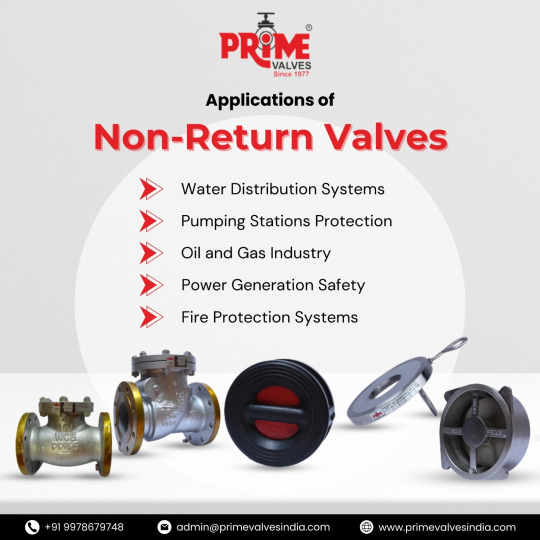#oilindustries
Explore tagged Tumblr posts
Text
Oil & Gas | Rugged monitoring
Rugged Monitoring provides comprehensive condition monitoring solutions for offshore oil refineries with the leading-edge design and engineering technology. Our Solutions are focused to provide the condition of multiple electrical assets operating in any critical or harsh environmental conditions.
0 notes
Text

Crank Rod Pump | Unico
Unico’s CRP rod pumping unit is a short-stroke sucker rod pumping unit for cost effective pumping of low-flow wells. Featuring a compact, direct-drive crank mechanism, the unit is lightweight, easy to transport, and mounts easily to a conventional well-head.
Request for Quote: https://bit.ly/3IEPc7l
0 notes
Text

Engineered for efficiency and reliability, our Bi-Directional Gate Valve ensures seamless flow control in both directions. Designed for industries where precision is paramount, this valve guarantees optimal performance, durability, and minimal pressure drop. When it comes to choosing the right valve, performance and preference go hand in hand.
for more details visit at - https://www.primevalvesindia.com/products/gate-valve
#PrimeValves#gatevalves#gatevalvesupplier#watertreatmentplant#oilindustry#oilandgas#naturalgas#industrialprocess
0 notes
Text
The 10 Biggest Oil Companies In The World In 2025

The Biggest Oil Companies in the World in 2025 are driving the global energy sector, with Saudi Aramco leading at a $1.787 trillion market cap. Explore how ExxonMobil, Chevron, Shell, and others shape the industry through innovation, sustainability, and expansion. From exploration and refining to clean energy initiatives, these companies are adapting to the future of oil and gas. Get insights into their market value, operations, and financial growth.
Click Here: Read More
#BiggestOilCompanies#OilIndustry#EnergySector#GlobalMarkets#OilAndGas#EnergyTransition#SaudiAramco#ExxonMobil#Chevron#Shell#PetroChina#Sustainability#RenewableEnergy#FossilFuels#FutureOfEnergy
0 notes
Text

At Parth Engineers & Consultant, we pride ourselves on being one of the leading manufacturers and exporters of high-quality packaging machinery and equipment. Serving a wide range of industries including Pharmaceuticals, Veterinary, Food & Dairy, Chemicals, Oil & Lubricants, Pesticides, Perfumes, Shampoo, and Cosmetics, we’ve been the trusted name in packaging solutions since 1995. With innovation and precision, we continue to help businesses across the globe streamline their packaging processes and achieve excellence.
For more information, visit - https://www.parthec.com/
#Parthec#PackagingMachineryManufacturer#machineryexporter#PharmaMachinery#chemicalmachinery#industrialmachinery#pharmaceuticalindustry#foodindustry#chemicalindustry#lubricants#oilindustry#perfumesindustry#shampooindustry#CosmeticsIndustry
0 notes
Text

🔧 Ensuring Safety and Reliability in the Oil & Gas Industry with NDT Testing 🔧
In the oil and gas industry, safety and reliability are paramount. Non-Destructive Testing (NDT) is crucial for ensuring that your equipment and infrastructure meet the highest safety standards.
✅ Improve Asset Integrity ✅ Enhance Operational Efficiency ✅ Minimize Downtime & Risk
Keep your operations running smoothly and safely with expert NDT inspection services.
🌐 Visit us: www.bestndtinspection.com
#OilAndGas#NDT#NonDestructiveTesting#SafetyFirst#OilIndustry#GasIndustry#InspectionServices#AssetIntegrity#BestNDTInspection
0 notes
Text

Achieve faster and more efficient hydration with Fast Hydration Guar Gum Powder! Ideal for industries like oil and gas drilling, this advanced guar gum offers rapid hydration for smoother, more reliable operations. Enhance performance, reduce downtime, and stay ahead of the competition with our high-quality solution.
For more details, visit- https://www.agrogums.com/product/fast-hydration-guar-gum-powder
0 notes
Text
#Germany#Russia#OilTanker#ShadowFleet#EnergyCrisis#GlobalPolitics#Geopolitics#InternationalRelations#Sanctions#EnergyTrade#WorldNews#OilIndustry#TankerNews#GlobalAffairs#GeopoliticalTensions#reelsfbシ#reelstrending#reelsviralfb#reelschallenge#reelsinstagram#reelsviral#reelsvideo#reelsvideoシ#東海大相模#Texas#Howard#Arch#グッドマン#免許返納#Villa
0 notes
Text
Efficient and safe catalyst handling is critical for industries like Petro-Chemical, Fertilizer, Chemical, Refinery, and Oil & Gas. Acme Air Equipments Company Pvt. Ltd. presents the Catalyst Loading/Unloading System - an engineered solution designed for the seamless transfer of catalysts to and from reactors and reformers.
For more details, visit- https://www.acmeairequipments.com/product/catalyst-loading-unloading-systems/
#AcmeAirEquipments#CatalystLoadingSystem#CatalystUnLoadingSystem#petroleumindustry#chemicalindustry#FertilizerChemical#oilindustry#gasindustry
0 notes
Text
Japan Aims for 50% Renewable Energy by 2040 in Revised Energy Policy

Source: downtoearth.org.in
Category: News
Japan’s Renewed Push for Clean Energy
Japan energy policy has set an ambitious target to make renewable energy account for 40-50% of its power supply by fiscal year 2040, according to a draft of its updated energy policy. The plan also outlines a significant role for nuclear energy, which is expected to provide around 20% of the country’s electricity. This clean energy push comes as Japan faces rising power demands and increasing global attention due to its reliance on imported liquefied natural gas (LNG) and Middle Eastern oil.
Currently, thermal power dominates Japan’s electricity mix, making up 68.6% in 2023. However, the draft policy projects a sharp decrease in the use of inefficient coal-fired plants, reducing thermal power’s share to 30-40% by 2040. While it does not specify the proportion of coal, gas, and oil, the document emphasizes the importance of LNG as a transitional power source. It highlights the need for long-term LNG contracts to mitigate supply risks and price fluctuations, which could arise due to geopolitical tensions.
Nuclear Power and Energy Security
Nuclear energy, once marginalized following the 2011 Fukushima disaster, is set for a revival under Japan’s new energy blueprint. The draft policy maintains the 2030 nuclear target of 20-22%, aligning it with 2040 projections. This marks a shift from earlier policies that prioritized reducing reliance on nuclear power. Instead, Japan now plans to invest in next-generation reactors to replace decommissioned plants, reflecting a renewed focus on nuclear technology.
Japan energy policy change comes amidst growing concerns over energy security, driven by global geopolitical events such as the Russia-Ukraine war. While the previous energy strategy centered on decarbonization, the new approach strikes a balance between clean energy goals and ensuring a stable power supply. Provisional forecasts predict electricity demand will rise by 12-22% from current levels by 2040, further necessitating a diversified energy mix.
Path to Net Zero and Future Challenges
Japan’s updated energy roadmap marks a critical step toward achieving carbon neutrality by 2050. However, unlike earlier plans, the revised policy omits specific targets for emerging fuels like hydrogen and ammonia. These fuels were initially projected to contribute about 1% of the energy mix by 2030, but their role in the updated policy remains unclear.
In addition to the energy draft, a joint strategy from Japan’s industry and environment ministries proposes cutting greenhouse gas emissions by 60% by 2035 and 73% by 2040. These targets form part of a linear pathway to net-zero emissions by 2050. The finalized energy policy, expected in February, will provide more clarity and be submitted to the United Nations.
Japan energy policy reflects its balancing act between meeting environmental goals, ensuring energy security, and addressing rising power needs. While ambitious, the success of these targets will hinge on technological advancements, public acceptance of nuclear power, and global energy market stability.
#oilandgasindustry#energy#renewableenergy#energyindustry#cleanenergy#oilfield#oilindustry#power#oilproduction#petroleum#cleantech#naturalgas#energytransition
0 notes
Text

Non-return valves are vital for preventing backflow damage across various industries. From ensuring clean water flow in distribution systems to protecting pumps, turbines, and pipelines in oil, gas, and power generation, these valves enhance safety and efficiency. They also guarantee a reliable water supply in fire protection systems, making them essential for smooth operations and system integrity.
For more details, visit- https://www.primevalvesindia.com/products/c/non-return-valve
#PrimeValves#NonReturnValves#WaterDistribution#pumpingstation#oilindustry#GasIndustry#powergeneration#fireprotectionsystems#pumpprotection#turbines
0 notes
Text
Maximizing Efficiency in Oil Extraction: The Future of Pump Jacks

The global pump jack market is set to grow, driven by technological advancements, mature oil fields, and the need for enhanced oil recovery. Innovations in automation are improving efficiency and lowering costs. As the industry adapts to new environmental regulations, the future of pump jacks looks bright.
Download Sample Report..
1 note
·
View note
Text

Transform your business with cutting-edge predictive analytics in the Oil & Gas sector! Our exclusive UAE database tracks over 713 projects valued at $437 billion, giving you deep insights into sector segmentation and project pipelines. Want to forecast spending and spot the biggest opportunities? Not an issue! We’ve got you covered with up-to-date data on major projects, contractors and consultants. This information gives your sales team the edge they need to plan and drive success. Don't just keep up—lead the way in the UAE’s Oil & Gas industry with smarter, data-driven decisions! Get connected with PROJECT INTELL to stay ahead! Visit https://www.projectintel.net/oil-gas-projects to learn in detail!
#projectintel#oil#gas#oilandgas#oilindustry#gasindustry#projectmanagement#constructionprojects#oilandgasbusiness
0 notes
Text
Unveiling Saudi Aramco: Inside the World's Largest Oil Company

Saudi Aramco, the state-owned oil behemoth of Saudi Arabia, stands unmatched in the global energy sector. Its dominance stems from a blend of strategic business practices, cutting-edge technology, and significant influence in the international oil market. Here's an in-depth look at the factors driving Saudi Aramco’s unparalleled success:
1. Vast Oil Reserves and Production Efficiency
At the core of Saudi Aramco’s success is its access to immense oil reserves and its commitment to high-efficiency production. The company invests heavily in exploration and state-of-the-art drilling technologies. Advanced reservoir management techniques enable them to maximize extraction and maintain a low-cost production profile, positioning them as one of the world’s most efficient oil producers.
2. Integrated Supply Chain and Logistics
Saudi Aramco excels through its meticulously managed integrated supply chain and logistics network. This includes everything from oil exploration and production to refining, storage, and global distribution. The company optimizes transportation routes and storage facilities, ensuring that they can meet fluctuating global energy demands with precision and reliability.
3. Technological Innovation and Research
Innovation is a pillar of Saudi Aramco’s strategy. The company focuses on advancing oil recovery methods and integrating digital technologies into its operations. This commitment to research and development helps enhance operational efficiency, reduce environmental impact, and ensure sustainable long-term growth.
4. Global Market Influence and Strategic Partnerships
Saudi Aramco wields considerable influence in the global oil market through strategic partnerships and joint ventures. By forming long-term agreements with international oil companies and governments, the company effectively navigates geopolitical challenges and market volatility. Its strategic market insights and diplomatic relations further bolster its global position.
5. Corporate Governance and Financial Stability
Strong corporate governance and robust financial stability are cornerstones of Saudi Aramco’s operations. The company adheres to transparent reporting practices and employs comprehensive risk management frameworks. This financial discipline reinforces investor confidence and supports its sustainable growth strategies.
6. Commitment to Sustainability and Energy Transition
In response to global sustainability trends, Saudi Aramco is actively investing in renewable energy projects and carbon capture technologies. The company is dedicated to reducing greenhouse gas emissions and minimizing its environmental footprint while transitioning towards a more sustainable energy future.
7. Employee Development and Community Engagement
Saudi Aramco places a high priority on employee development, safety, and community involvement. It offers extensive training programs, prioritizes health and safety, and engages in various corporate social responsibility initiatives. These efforts contribute to a motivated workforce and positively impact societal well-being.
8. Strategic Vision and Future Growth
Saudi Aramco’s strategic vision includes diversifying beyond oil and exploring new energy sectors. The company is adapting to evolving market dynamics and embracing innovation to maintain its leadership role in the global energy landscape. Future growth initiatives are focused on sustainability and adapting to changing energy demands.
Conclusion
Saudi Aramco’s success is a testament to its strategic integration of vast reserves, operational efficiency, and technological innovation. Through its global market influence, strong corporate governance, and commitment to sustainability, the company continues to shape the future of energy. These insights into its business practices reveal a company adept at navigating challenges and seizing opportunities in the ever-evolving global energy sector.
READ MORE
#SaudiAramco#OilIndustry#BusinessSecrets#EnergySector#GlobalOil#AramcoInsights#OilAndGas#CorporateStrategy#EnergyGiants#OilCompany#BusinessSuccess#IndustryLeaders#OilEconomy#EnergyBusiness#SaudiOil#news
0 notes
Text

The Optidrive E3 NEMA 4X series has an outdoor rated enclosure that is dust tight and washdown ready!
Direct Mounting - Install directly on your processing equipment and be sure of protection from dust, contaminants and high‑pressure washdown.
Locally Customizable - Flat front to terminal cover with mounting points for switches and an internal PCB.
Coated Heatsink as Standard - Ideal for hygiene based operations requiring washdown, such as food and beverage.
Switched Models - Simply wire up the drive, turn the inbuilt potentiometer and the motor will start running, allowing immediate energy savings.
#variablefrequencydrives#vfd#acdrives#nema4x#outdoor#tough#pumps#fans#conveyors#mixers#farm#agriculture#marine#wastewater#oilindustry#torque#speed#controls#invertek#optidrive
0 notes
Text
Leading Industry Oil Solutions by Turvo Oil
Turvo Oiloffers top-tier Industry Oil solutions, delivering unmatched quality and performance for various industrial applications. Our extensive range of Industry Oil products is designed to meet the highest standards, ensuring optimal efficiency and longevity for your machinery and equipment. Trust Turvo Oilfor reliable, high-quality oils that enhance operational reliability and reduce downtime. For More Information contact us: (+65) 9838 5264.

1 note
·
View note